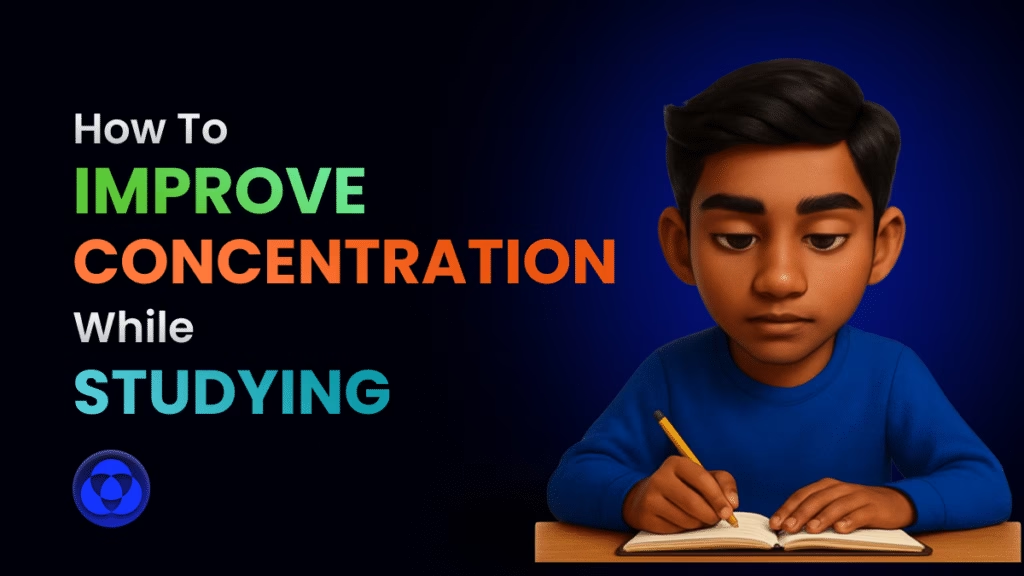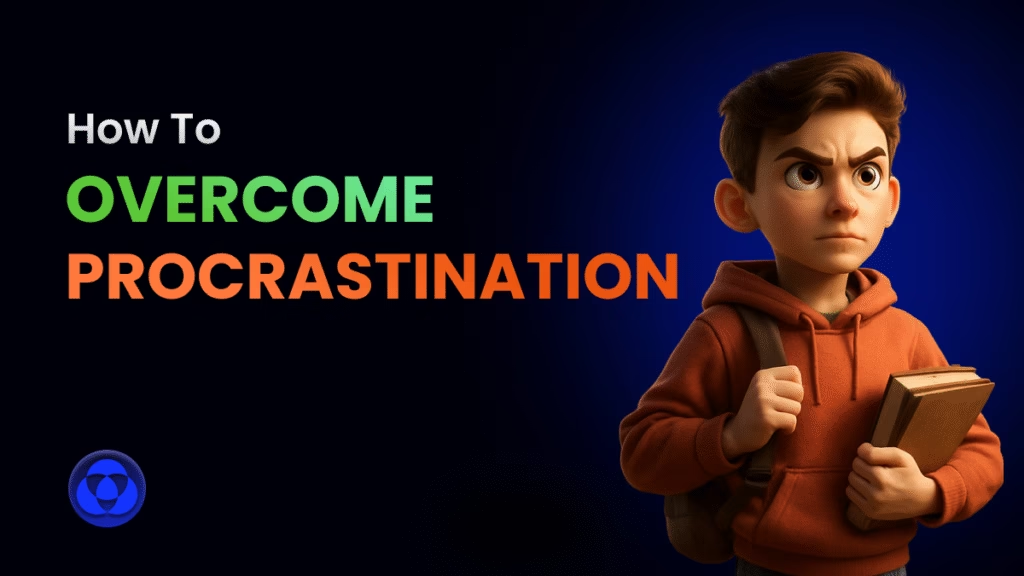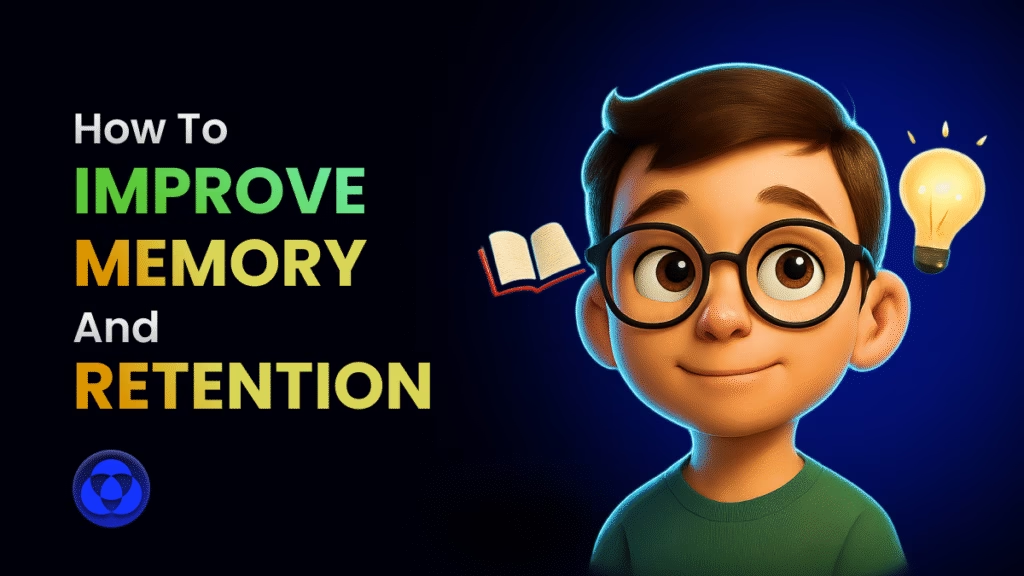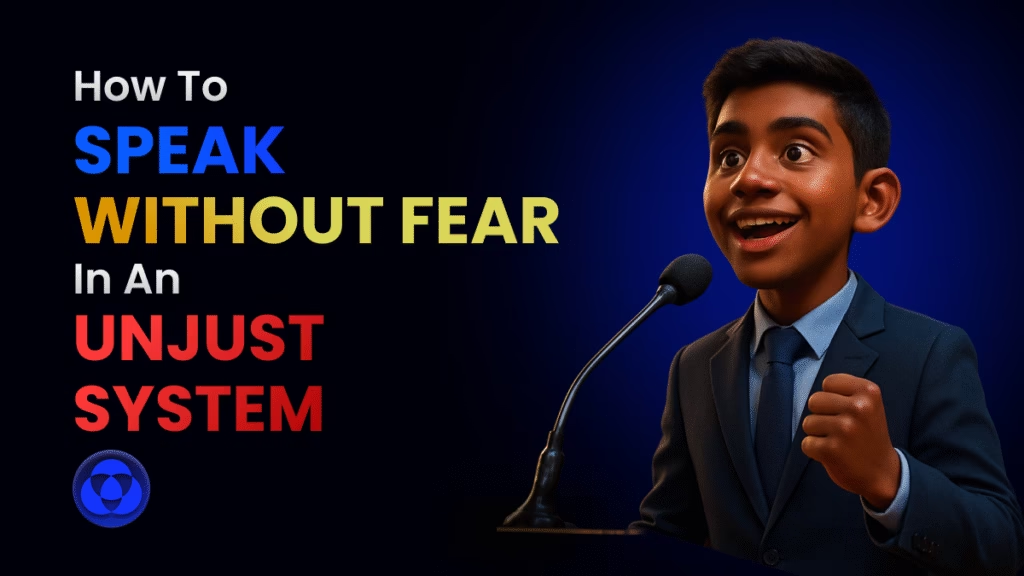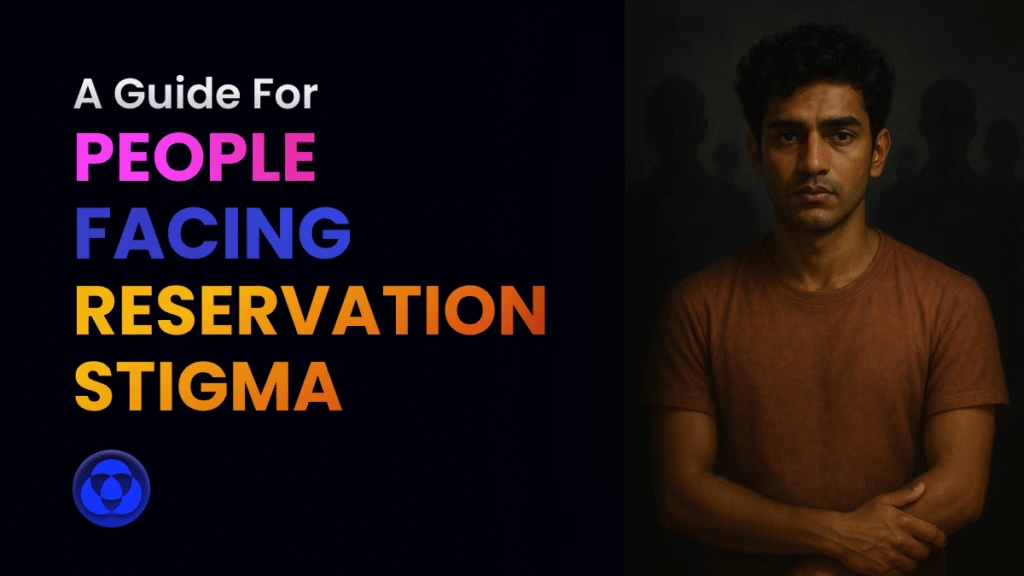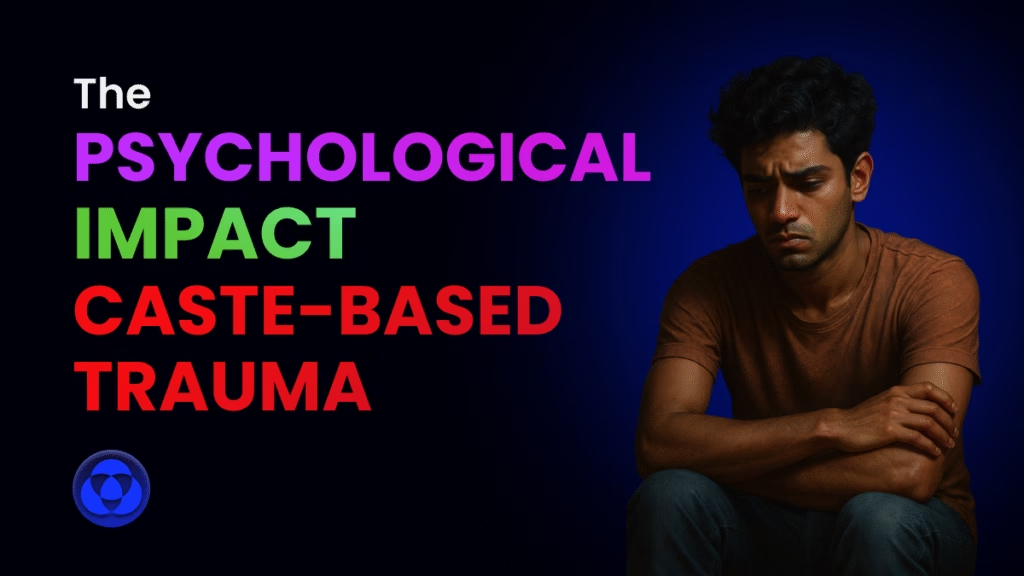Have you ever opened your books with the intention to study, only to find your mind wandering just minutes later? Maybe you’re staring at your notebook, ready to focus, but your thoughts drift to family worries, noise from the next room, or that overwhelming sense that no matter how hard you try, you just can’t concentrate. If that sounds familiar, you’re not alone.
For many Bahujan students, studying isn’t just about reading and remembering. It means dealing with constant distractions, self-doubt, and a world that rarely makes things easier.
Let’s be honest: concentration is difficult for everyone. But when you come from a marginalized background, the challenges can feel even greater. Maybe you don’t have a quiet space to study. Maybe you’re expected to help with chores or earn money. Maybe you carry the heavy pressure of being the one who needs to succeed for your whole family. In moments like these, it can feel like everything is working against you, and it’s easy to blame yourself.
But the truth is, your struggle is not your fault. It comes from generations of stress, social pressure, and a system that hasn’t always supported your journey.
This guide is for you. It’s not just a list of tips. It’s about recognizing your reality, understanding what you’re up against, and offering real, practical tools to help you strengthen your focus and build your confidence, one step at a time.
Why Is Concentration So Hard? Understanding the Real Challenges
Before jumping into “study tips,” let’s pause.
If you’ve ever sat with your book open but your mind was somewhere else, and then felt guilty for not being able to focus, know this: you are not alone.
And you are definitely not lazy.
The truth is, concentration is not just about discipline.
For many Bahujan students, it’s about surviving in a world that constantly pulls your mind and spirit in different directions.
1. Living in Crowded or Noisy Environments
Let’s be real.
Studying in a one-room house where the TV is always on, siblings are fighting, and relatives are talking loudly is not a study environment. It feels more like a battlefield.
Many of us don’t have a study table, a private room, or even consistent electricity.
Yet we are expected to simply sit and focus.
This is not your personal failure.
This is what systemic inequality looks like in your daily life.
2. Financial Stress and Family Responsibilities
When there’s financial pressure at home, your mind is not focused only on studies. It’s also thinking about:
- Bills that need to be paid
- Part-time jobs you might have to take
- Whether your parents can afford coaching fees or even the next meal
You may be studying with the weight of your family’s future on your shoulders.
That kind of emotional pressure makes it hard to concentrate.
3. Caste-Based Exclusion and Lack of Representation
Most textbooks do not talk about your history.
Most toppers do not look like you.
Most teachers do not relate to your journey.
This kind of silence and invisibility slowly eats away at your motivation.
How can someone dream big when the world keeps sending signals that they do not belong?
This is not just about difficulty in focusing.
It is about how the system quietly takes away your sense of hope.
4. Feeling Alone or Misunderstood
Maybe your parents do not understand why you stay up late studying.
Maybe your friends are walking a different path.
Maybe no one around you even talks about entrance exams, scholarships, or long-term goals.
That feeling of loneliness often turns into self-doubt.
It can make studying feel like shouting into an empty room.
But hear this: you are not alone.
There is a whole community rising alongside you, even if you cannot see them right now.
5. Anxiety, Self-Doubt, and Overthinking
You have grown up hearing things like:
“You people don’t study.”
“You only got that seat because of reservation.”
“This career is not meant for you.”
These are not just random comments. They become voices in your head.
When you sit down to study, those voices get louder:
“Am I really smart enough?”
“What if I fail and prove them right?”
This anxiety is not a flaw. It is a response to trauma.
It is also a form of resistance.
And it deserves understanding, not judgment.
6. Constant Distractions and Mental Burden
Phone notifications, household chores, unplanned visits from relatives.
Sometimes your mind is so overloaded that even one small thing can break your focus.
You are not just dealing with distractions. You are dealing with:
- Burnout
- Emotional exhaustion
- The stress of surviving every single day
And yet, you still sit down with your book. You still try.
That effort by itself is powerful. It is an act of quiet strength.
Concentration Is a Muscle: You Can Train It
Forget what they say about “natural intelligence” or “you either have focus or you don’t.”
That idea is a myth. Concentration is not some magical gift. It is a muscle.
And like any muscle, it can get tired, weak, or even hurt.
But the good news is that it can also be rebuilt. Slowly. Consistently. With care.
Your Brain Isn’t Broken. It’s Overstimulated or Overwhelmed
If you’ve been struggling to focus, it doesn’t mean something is wrong with your brain.
It means your mind is doing its best to survive in a world that is too loud, too fast, and often too cruel.
Ask yourself:
How many things are you trying to manage right now? Family expectations, financial stress, social media, emotional pain?
How often does your brain get a chance to truly rest?
How frequently are you affected by caste-based trauma, discrimination, or self-doubt?
This is not a sign of weakness or failure.
This is what mental overload looks like.
You are not broken.
You are just carrying too much and still showing up to study. That is strength.
Concentration Can Be Rebuilt with Consistent Habits
No one becomes a focused student overnight. Even toppers build their focus gradually, like a habit, one step at a time.
Here’s how you can start building your focus too:
- Set a 10-minute study timer. Just 10 minutes of deep, quiet work. No phone. No noise.
- Take mindful breaks. Breathe. Walk. Drink some water. Rest is not laziness.
- Cut out one distraction at a time. You don’t need to change everything in one day. Mute one group chat. Clear one small space on your table.
- Create your own rhythm. Maybe night works best for you. Or maybe early morning feels right. Choose what fits you.
- Celebrate every small win. Finished one chapter? Reviewed one topic? That is success. Write it down. Feel proud.
Even if your surroundings are difficult, these simple steps help you build strength from within.
You begin to take back your mental space. Bit by bit.
And one day, almost without noticing, you’ll realize that your focus has become sharper, stronger, and more peaceful.
Not because the system changed.
But because you trained your mind with patience, like a warrior.
Practical, Caste-Aware Strategies to Improve Concentration
Let’s be real. Most “study hacks” online don’t speak to the struggles Bahujan students face. They assume you have a quiet room, unlimited Wi-Fi, supportive parents, and zero emotional burden. But you’re studying in the middle of real-life chaos, and that deserves smarter, rooted strategies.
Here’s how you can train your concentration with what you have, where you are, and who you are:
Create a Study Space, Even If It’s Temporary
You don’t need a fancy desk to create a sacred space for your mind. Try:
- A corner of your room where you always sit to study
- A bedsheet hung up to block visual noise
- Cardboard or sari used as a divider to signal “this is my zone”
- Facing a wall with your goals posted on it
It’s not about perfection; it’s about mental boundaries. Even a small corner can become a powerful study sanctuary.
Practice “Focus Intervals” with the Pomodoro Technique
When your mind is tired or distracted, don’t aim for 3 hours of study. Aim for 25 minutes of full focus, then take a 5-minute break. Repeat this cycle 3 to 4 times. Then take a longer break.
This is called the Pomodoro Technique, and it helps you:
- Fight mental fatigue
- Train your focus gradually
- Feel small wins instead of overwhelm
Your attention span will grow, not by force but by rhythm.
Make a Daily Study Ritual
Rituals build mental discipline. Try using sensory cues to enter “study mode”:
- Light a small incense stick or diya before studying
- Play soft instrumental music or white noise in the background
- Always keep your study notebook and pen in one spot
- Say a short affirmation before you begin: “I study to change my life and my people’s future.”
These cues train your brain that it is time to focus now.
Use Grounding Techniques Before Studying
When your mind is anxious, scattered, or heavy, try these quick grounding techniques to reset:
- Take 5 deep breaths with eyes closed
- Splash cold water on your face
- Do a 1-minute stretch or short walk
- Write down 3 thoughts that are distracting you and set them aside
This brings your mind into the present so you are not fighting yesterday’s pain while trying to study today.
Reduce Social Media and Phone Distractions
Phones are designed to steal your focus, but you can take back control.
- Turn off notifications
- Put your phone in another room during Pomodoro sessions
- Use free apps like Forest, Focus To-Do, or just a basic timer
Use the phone as a reward, not a distraction:
“After 2 Pomodoros, I’ll check WhatsApp for 5 minutes.”
Small limits lead to big freedom.
Each of these strategies is about more than just productivity. They are about reclaiming your mind in a world that wants to keep it scattered.
You are not just training your brain. You are honoring your ancestors. You are building your future.
Dealing With Internal Distractors: Self-Doubt, Anxiety, and Negative Thoughts
For many Bahujan students, distractions don’t just come from phones or outside noise. They also come from within. Self-doubt, anxiety, and negative thoughts can eat away at your focus and confidence. These are not just personal flaws. They are the result of living in a society that was never built for you to thrive. It’s time to face these thoughts with honesty, strength, and the knowledge of your roots.
Understand That Mental Noise Comes From Unseen Oppression
When you sit down to study and your mind fills with fear, asking questions like “What if I fail?”, “Am I even good enough?”, or “Do people like me ever make it?”, remind yourself of this truth: these thoughts were planted in you.
You come from generations who were systematically excluded from education. You were mocked for speaking up and denied space in classrooms, libraries, and decision-making rooms. So when your brain is filled with self-doubt, it is not your fault. It is the echo of centuries of exclusion and discrimination.
Understanding this does not mean you are blaming others. It means you are seeing your struggle clearly. Your challenge is not only academic. It is also social, historical, and deeply personal.
Create a ‘Worry Notebook’
Before you start studying, take five minutes to open a notebook. Call it your Worry Notebook.
Write down everything that is crowding your mind.
No filter. Just honesty.
“I’m scared of failing.”
“I feel like I don’t belong.”
“I’m tired of being underestimated.”
This practice helps in two ways:
- It clears your head. Once the thoughts are on paper, they stop spinning in your mind.
- It gives your emotions a place to rest. Your feelings are valid. You are not weak for feeling them.
Make this a habit. Just like sharpening your pencil helps you write clearly, writing down your fears helps you think clearly.
Practice Self-Affirmation Rooted in Bahujan History
You are not alone in this journey. You carry the fire of Phule, the wisdom of Periyar, and the vision of Babasaheb.
When self-doubt rises, say to yourself:
“I carry the legacy of resistance and brilliance.”
Repeat it like a mantra. Say it when your hands shake before an exam. Say it when someone tries to limit you or questions your worth. Your place is not where others say it is. Your place is wherever you choose to stand.
You are not here by accident. You are here because of generations of resistance. You are breaking harmful cycles and rewriting the story.
Body-Mind Power for Bahujan Students
Nutrition, Sleep, and the Brain That Refuses to Quit
For Bahujan students grinding through exams, life isn’t just about studying. It is about surviving. Juggling emotional pressure, generational burdens, and systemic inequality is not a side-quest. It is the main game.
That’s why your brain isn’t “lazy” or “distracted.” It is overloaded. Unless your body is nourished, your sleep is protected, and your mind is supported, no timetable will truly work.
This guide offers tools that are affordable, effective, and grounded in your everyday reality.
Inexpensive Foods That Boost Brainpower
There is no need to depend on expensive or imported “superfoods.” Our local desi foods are full of nutritional value. Here are some essentials you can include in your daily routine:
- Peanuts – Rich in protein and healthy fats, they help sustain focus.
- Jaggery (gur) – Keeps your energy steady without the crash of refined sugar.
- Bananas – A great source of potassium and carbohydrates that fuel your brain.
- Eggs – Complete protein and a great source of choline, which supports memory.
- Soaked Chana – Rich in iron, helps fight fatigue, and keeps you full longer.
Bahujan Breakfast Hack: A simple, powerful combination is soaked chana, a banana, a bit of jaggery, and a cup of chai. This fuels both body and mind.
Prioritize Sleep as a Study Tool
You may have heard the phrase, “Sleep later, succeed now.” But this mindset is harmful. It is a lie sold to the working class to push us beyond our limits.
Sleep is essential for memory and learning. When you rest, your brain organizes what you have studied. When you skip sleep, it is like trying to collect water in a leaking pot.
Bahujan Truth: Rest is not a luxury. It is a necessity. Our ancestors were denied rest. Our generation must reclaim it.
Move Your Body, Move Your Mind
You do not need a gym, fancy shoes, or equipment. What you need is movement in any form.
- Stretch your arms and legs after every 45-minute study session.
- Walk in your gali, on the rooftop, or even around your room.
- Play one song and dance freely between study blocks.
Why is this important? Because movement increases blood flow to the brain. It improves focus, reduces anxiety, and helps you stay alert.
Remember: Resistance also looks like standing tall, stretching your spine, and breathing deeply when the world feels heavy.
Brain-Boosting Supplements for Mental Strength and Clarity
Here’s a list of brain-boosting, memory-enhancing supplements that are safe and accessible:
🧠 Omega-3 (Fish Oil / Algal Oil)
- Boosts memory, brain cell strength, and emotional stability
- Alt for vegetarians: Algal oil capsules or flaxseed
💊 Vitamin B12
- Fights fatigue, brain fog, and low energy
- Crucial for vegetarians or anyone low in meat/dairy
🩸 Iron
- Carries oxygen to the brain — fights mental tiredness
- Especially vital for menstruating students or those with poor diets
🌿 Brahmi (Bacopa Monnieri)
- Ancient Ayurvedic brain herb; improves memory + reduces stress
- Works best over long-term use
🍄 Lion’s Mane Mushroom
- Supports nerve health + sharpens thinking
- Used in modern brain-health research
🌞 Vitamin D3
- Helps mood, memory, and immune strength
- Needed if you’re mostly indoors (urban or hostel life)
🔋 Magnesium
- Calms the nervous system and improves sleep
- Helps reduce overthinking before bed
🍵 L-Theanine (from Green Tea)
- Promotes calm alertness
- Can be taken with chai or green tea for better focus without jitters
Final Reminder: This is Bigger Than Exams
“A weak body can’t carry a revolutionary mind.”
Your wellness is not a side topic. It is the main strategy.
Feed your body. Rest your brain. Move your blood.
Take your place, not just in the exam hall but in this unequal world, fully alert, deeply rooted, and unshakeably alive. You have every right to focus. To learn in peace. To build a future that reflects your worth, not what society has tried to make you believe. Concentration isn’t just a study technique; it’s a quiet rebellion against the noise of discrimination, doubt, and generational silence. When you choose to sit down and study, even when it’s hard, even when the world feels loud and unfair, you are doing something revolutionary.
You do not need to be perfect. You do not need to study like others who have more support, more space, or more comfort. What you need is what you already carry: the courage to keep going, even with tired eyes and a heavy heart. That is your power. That is your truth.
There will be days when focus feels impossible. When nothing sticks. When you question your place in this world. On those days, remember that you are not the first to feel this way and you will not be the last to overcome it.
This journey of concentration, of growth, of reclaiming your mind is not about proving your intelligence. It is about reclaiming what was always yours: the right to think deeply, to imagine freely, to rise boldly.
So go slowly if you must. Rest when you need. But don’t stop. Your mind is a future your ancestors dreamed of, and with love, rest, and resistance, it will take you far.

